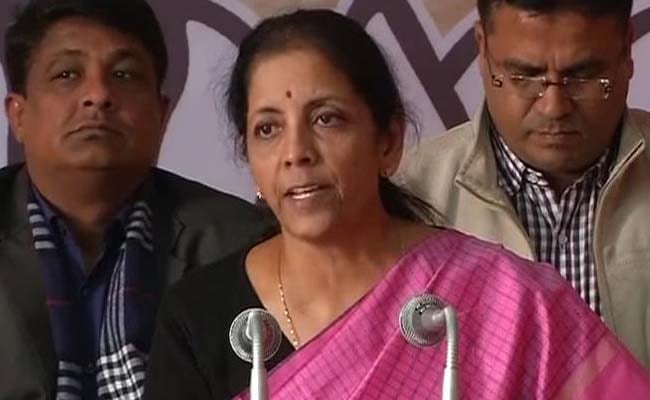
New Delhi:
India has "negotiated hard" at the recent World Trade Organisation meet in Nairobi to ensure that the interest of the developing countries and Least Developed Countries remains at the "centre of its agenda", the government told Parliament on Tuesday.
The Nairobi Ministerial Declaration reflected the differences among members of the World Trade body on the future of the Doha Development Agenda -- trade negotiations started in 2001 to benefit Least Developed Countries and developing countries -- as some developed nations including US are opposed to its continuance.
India has ensured that all member countries can "advance their arguments on the remaining Doha issues", Commerce Minister Nirmala Sitharaman told Lok Sabha. No new issues can be introduced in the WTO agenda without completing the Doha issues, she said.
The government's claim is significant as Opposition parties, including the Congress and the Left, have accused it of "surrendering the gains made under DDA".
The Narendra Modi government, they allege, has failed to give a permanent solution to the issue of developing countries having public stockholding for food security.
The government has denied this and the minister said India could secure a reaffirmation of the position it took at the Bali Ministerial Conference in 2013 - that members will continue to have public stockholding even as they negotiate a permanent solution.
"I am willing to debate for as long as they want. My point is that please don't mislead," Ms Sitharaman told NDTV when pointed out that the Left called the Nairobi deal an "abject surrender."
The other contentious issue involves the Special Safeguard Mechanism or SSM that allows developing countries to impose heavy tariff on imports if there is a sudden surge or dip in prices of global commodities.
Opposition parties argue that the Nairobi Declaration is silent on SSM and that means the mechanism to protect Indian farmers from dumping has been lost.
Denying this, the minister said India negotiated a separate Ministerial Decision that recognised SSM for the developing world.
The Nairobi Ministerial Declaration reflected the differences among members of the World Trade body on the future of the Doha Development Agenda -- trade negotiations started in 2001 to benefit Least Developed Countries and developing countries -- as some developed nations including US are opposed to its continuance.
India has ensured that all member countries can "advance their arguments on the remaining Doha issues", Commerce Minister Nirmala Sitharaman told Lok Sabha. No new issues can be introduced in the WTO agenda without completing the Doha issues, she said.
The government's claim is significant as Opposition parties, including the Congress and the Left, have accused it of "surrendering the gains made under DDA".
The Narendra Modi government, they allege, has failed to give a permanent solution to the issue of developing countries having public stockholding for food security.
The government has denied this and the minister said India could secure a reaffirmation of the position it took at the Bali Ministerial Conference in 2013 - that members will continue to have public stockholding even as they negotiate a permanent solution.
"I am willing to debate for as long as they want. My point is that please don't mislead," Ms Sitharaman told NDTV when pointed out that the Left called the Nairobi deal an "abject surrender."
The other contentious issue involves the Special Safeguard Mechanism or SSM that allows developing countries to impose heavy tariff on imports if there is a sudden surge or dip in prices of global commodities.
Opposition parties argue that the Nairobi Declaration is silent on SSM and that means the mechanism to protect Indian farmers from dumping has been lost.
Denying this, the minister said India negotiated a separate Ministerial Decision that recognised SSM for the developing world.
Track Latest News Live on NDTV.com and get news updates from India and around the world

